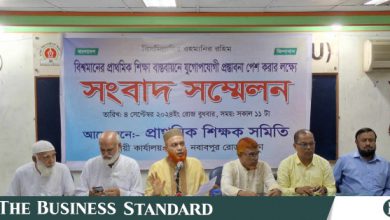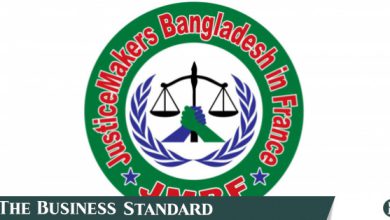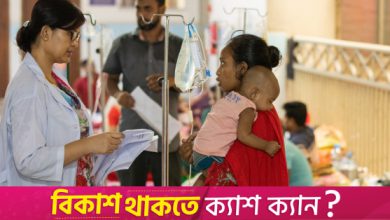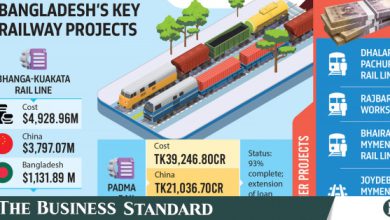World Bank pledges support for key reform initiatives
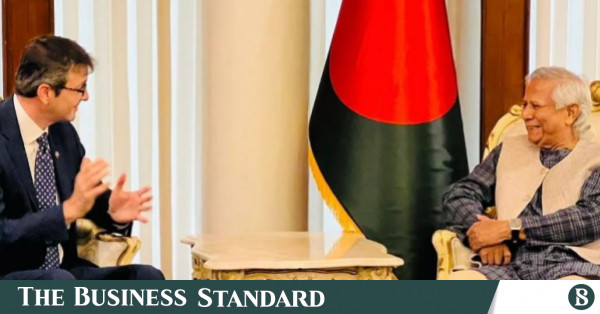

Yunus welcomed the bank’s support, saying the interim government has got a broader mandate from the people to get rid of corruption and make a new start.
Chief Adviser Dr Muhammad Yunus holds a discussion Martin Raiser, vice president for South Asia at the World Bank on 19 September, 2024.
“>
Chief Adviser Dr Muhammad Yunus holds a discussion Martin Raiser, vice president for South Asia at the World Bank on 19 September, 2024.
Following the meeting with Chief Adviser Dr Muhammad Yunus, visiting World Bank Vice-President for South Asia Martin Raiser said the international money lender was ready to help Bangladesh with its key reforms.
“Count on us. We are ready to help,” Raiser said in response to the chief adviser’s call for broader support for the interim government’s move to fix the economy, clean up corruption and undertake key reforms in areas such as the judiciary.
Raiser said the World Bank was “excited” by the government’s reform agenda and he felt “it was worth visiting Bangladesh right now”.
“There are so many expectations,” he said.
The visiting World Bank vice president said the lender was ready to support reforms in banking, taxation, customs, VAT, digitisation and anti-corruption measures.
Yunus welcomed the bank’s support, saying the interim government has got a broader mandate from the people to get rid of corruption and make a new start.
“This is the season of reforms. We want to start now,” he said, adding the student-led mass uprising in July-August prepared the ground for big reforms in the existing system.
“We don’t want to go back. It’s a wholesale rejection of the past. It is a clean slate,” he said.
Dr Yunus also outlined the reform initiatives his government has so far rolled out and added that in the economic front the top priority is corruption, labour reforms and youth.
He said the government would implement ILO conventions in labour reforms, which will boost foreign investors’ confidence in Bangladesh and also help local manufacturers gain an international foothold.
“We want to get it done,” he said, adding Bangladesh should be a global player in sectors other than the readymade garments.
Raiser appreciated the move to woo foreign direct investment, saying the annual FDI in Bangladesh is about half percent of the country’s GDP and was one of the lowest in the region.
Raiser said the World Bank also approved $700 million dollars for the Rohingya humanitarian crisis and for the host communities in Cox’s Bazar.
The chief adviser said he was keen for support for the hundreds of thousands of young people who have been growing up in the Rohingya camps in Cox’s Bazar.
“We have to focus on this,” he said.
Lutfey Siddiqi, special envoy of the Chief Adviser, Lamiya Morshed, senior secretary and head of the SDG affairs, Abdoulaye Seck, the World Bank country director, and Shahriar Kader Siddiky, secretary of the economic relations division, also participated in the meeting.
World Bank can provide $2b in loans: Martin Raiser
The World Bank could provide a total of $2 billion in support to Bangladesh in the current fiscal year 2024-2025, which would include budget support and project assistance, said Martin Raiser, vice president for South Asia at the World Bank
“The final decision on the loan is made during the World Bank’s board meeting. However, the possibility of providing $2 billion in assistance for the current fiscal year is being examined,” said Martin Raiser today after a meeting with Finance Adviser Salehuddin Ahmed.
“Some of this amount will be given as budget support, while the rest will be allocated to various important projects in the health and energy sectors. Additionally, further support will be provided for other projects based on the needs of the Bangladesh government,” he added.
He also mentioned that they are exploring what can be done from the International Development Association (IDA) fund of the World Bank.
Regarding the meeting, Finance Advisor Salehuddin Ahmed said, “Discussions covered various topics with the World Bank, such as budget support, health and energy, fertilizer imports, and food self-sufficiency. Issues like post-flood rehabilitation and the Rohingya crisis were also discussed.”
He mentioned that the World Bank has been very positive about these matters and that the areas for support are now quite clear.
“The World Bank will also coordinate with other organisations,” he said.
Furthermore, the adviser added that the reforms Bangladesh has undertaken seem credible to the World Bank.
Abdoulaye Seck, the World Bank’s country director for Bangladesh, also attended the meeting.
Martin Raiser arrived in Dhaka on 18 September for a two-day visit. He is also set to meet with the chief adviser of the Interim Government Dr Muhammad Yunus during his stay
